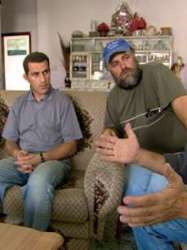Free Voice of Labor: The Jewish Anarchists est un film de genre Documentaire
Free Voice of Labor: The Jewish Anarchists (1980)

Si vous aimez ce film, faites-le savoir !
- Infos
- Casting
- Infos techniques
- Photos
- Vidéos
- Passages TV
- Citations
- Personnages
- Musique
- Récompenses
Durée 1h
Genres Documentaire
Themes Religion, Documentaire historique, Documentaire sur la politique, Documentaire sur la religion, Documentaire sur l'anarchisme, Politique, Religion juive
Note74%










The Free Voice of Labor: The Jewish Anarchists is a 1980 documentary by Steve Fischler and Joel Sucher of Pacific Street Films. It memorializes the story of the Yiddish anarchist newspaper Fraye Arbeter Shtime, and the Jewish anarchist movement of the early 20th century. The movie contained a short interview with a very young Joe Conason. Paul Avrich was a consultant on the film. As of 2006, AK Press has begun distributing it as part of a double DVD release with Anarchism in America, named after the latter.
Bande annonce de Free Voice of Labor: The Jewish Anarchists
Bluray, DVD
Streaming / VOD
Commentaires
Postez un commentaire :
Suggestions de films similaires à Free Voice of Labor: The Jewish Anarchists
Il y a 8951 ayant les mêmes genres cinématographiques, 10501 films qui ont les mêmes thèmes (dont 0 films qui ont les mêmes 7 thèmes que Free Voice of Labor: The Jewish Anarchists), pour avoir au final 70 suggestions de films similaires.Si vous avez aimé Free Voice of Labor: The Jewish Anarchists, vous aimerez sûrement les films similaires suivants :

Confrontation at Concordia (2003)
Origine Canada
Genres Documentaire
Thèmes Afrique post-coloniale, Religion, Documentaire sur le droit, Documentaire sur la guerre, Documentaire historique, Documentaire sur une personnalité, Documentaire sur la politique, Documentaire sur la religion, Documentaire sur les villes, Politique, Religion juive
The documentary opens with scenes of the violence at the event, depicting fighting between protesters and Jewish students attempting to enter the venue. This is followed by an interview with student Samir Elitrosh, a leader of the Solidarity for Palestinian Human Rights and the leader of anti-Israel violence who was later suspended. It also features interviews with Concordia's Hillel president Yoni Petel and Concordia rector Frederick Lowy, and concludes with a discussion of what it sees as the growing trend of anti-Israel activities on North American campuses.
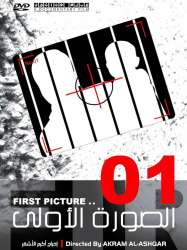
الصورة الاولي (2007)
, 27minutesGenres Documentaire
Thèmes Afrique post-coloniale, Religion, Documentaire sur le droit, Documentaire sur la guerre, Documentaire historique, Documentaire sur une personnalité, Documentaire sur la politique, Documentaire sur la religion, Politique, Religion juive
Note75%






At the Green Line (2005)
, 52minutesOrigine Israel
Genres Documentaire
Thèmes Afrique post-coloniale, Religion, Documentaire sur le droit, Documentaire sur la guerre, Documentaire historique, Documentaire sur une personnalité, Documentaire sur la politique, Documentaire sur la religion, Politique, Religion juive

They Were Not Silent (1997)
, 30minutesGenres Documentaire
Thèmes Le racisme, Religion, Le monde du travail, Documentaire sur la discrimination, Documentaire sur le droit, Documentaire sur la guerre, Documentaire historique, Documentaire sur une personnalité, Documentaire sur la politique, Documentaire sur la religion, Politique, Religion juive, Documentaire sur la Seconde Guerre mondiale
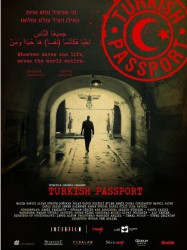
Turkish Passport (2011)
, 1h31Genres Drame, Documentaire, Historique
Thèmes Le racisme, Religion, Documentaire sur la discrimination, Documentaire sur le droit, Documentaire sur la guerre, Documentaire historique, Documentaire sur une personnalité, Documentaire sur la politique, Documentaire sur la religion, Politique, Religion juive, Documentaire sur la Seconde Guerre mondiale
Note79%





Turkish Passport tells the story of diplomats posted to Turkish embassies and consulates in several European countries, who saved numerous Jews during the Second World War. Whether they pulled them out of Nazi concentration camps or took them off the trains that were taking them to the camps, the diplomats, in the end, ensured that the Jews who were Turkish citizens could return to Turkey and thus be saved. Based on the testimonies of witnesses who traveled to Istanbul to find safety, Turkish Passport also uses written historical documents and archive footage to tell this story of rescue and bring to light the events of the time. The diplomats saved not only the lives of Turkish Jews, but also rescued foreign Jews condemned to a certain death by giving them Turkish passports. In this dark period of history, their actions lit the candle of hope and allowed these people to travel to Turkey, where they found light. Through interviews conducted with surviving Jews who had boarded the trains traveling from France to Turkey, and talks with the diplomats and their families who saved their lives, the film demonstrates that "as long as good people are ready to act, evil cannot overcome".
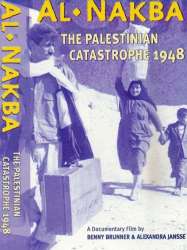 , 58minutes
, 58minutesRéalisé par Benny Brunner
Genres Documentaire
Thèmes Afrique post-coloniale, Religion, Documentaire sur le droit, Documentaire sur la guerre, Documentaire historique, Documentaire sur une personnalité, Documentaire sur la politique, Documentaire sur la religion, Politique, Religion juive
Note75%





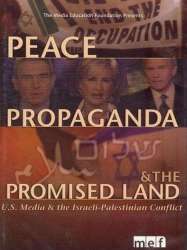 , 1h20
, 1h20Origine Etats-Unis
Genres Documentaire
Thèmes Afrique post-coloniale, Religion, Documentaire sur le droit, Documentaire sur la guerre, Documentaire historique, Documentaire sur une personnalité, Documentaire sur la politique, Documentaire sur la religion, Politique, Religion juive
Note81%





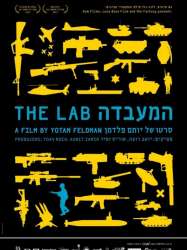
Ha-Ma'Abada (2013)
Genres Documentaire, Historique
Thèmes Afrique post-coloniale, Religion, Documentaire sur le droit, Documentaire sur la guerre, Documentaire historique, Documentaire sur la politique, Documentaire sur la religion, Politique, Religion juive
Note71%






Rachel (2009)
, 1h40Réalisé par Simone Bitton
Origine France
Genres Documentaire
Thèmes Afrique post-coloniale, Religion, Documentaire sur le droit, Documentaire sur la guerre, Documentaire historique, Documentaire sur une personnalité, Documentaire sur la politique, Documentaire sur la religion, Politique, Religion juive
Note74%





Le 16 mars 2003, au sud de la bande de Gaza, Rachel Corrie, jeune Américaine pacifiste bénévole au sein de l'International Solidarity Movement, meurt écrasée par un bulldozer de l'armée israélienne alors qu'elle tentait de s'opposer à la destruction de maisons palestiniennes. Le documentaire est conçu comme une enquête, à l'aide d'entretiens télévisés, d'images militaires, de témoignages de soldats et de personnes présentes sur les lieux du drame.
 Connexion
Connexion
